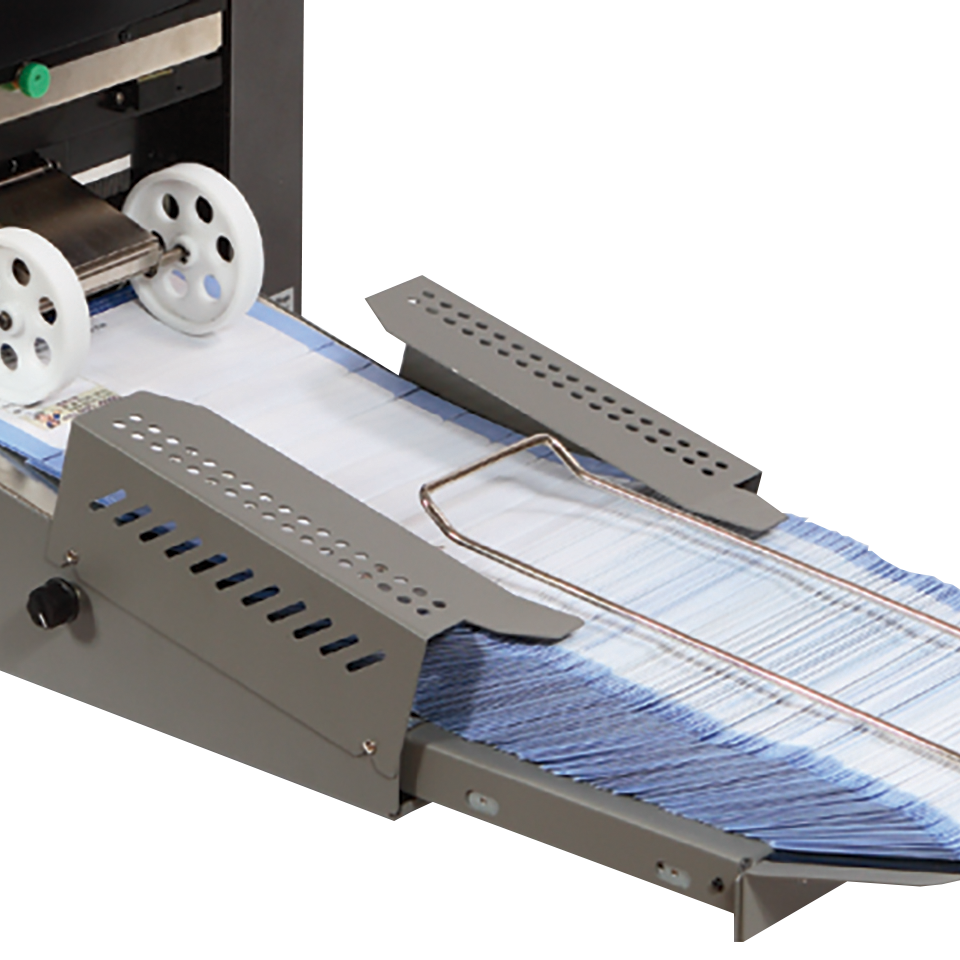Pressure Sealer Machines
In the fast-paced world of mail and document processing, efficiency, and precision are critical. Pressure sealer machines stand out as indispensable tools for automating the sealing of pressure-sensitive forms, ensuring secure and tamper-evident documents. This comprehensive guide explores everything you need to know about pressure sealer machines, including their functionality, applications, benefits, and maintenance.
What is a Pressure Sealer Machine?
A pressure sealer machine, also known as a pressure folder sealer, is a device designed to fold and seal pressure-sensitive forms and mailers without the need for envelopes. These machines use pressure to activate a special adhesive on the forms, creating a secure and tamper-evident seal. They are widely used in various industries for processing high volumes of documents efficiently.

How Does a Pressure Sealer Machine Work?
- Document Loading: The user loads pressure-sensitive forms into the machine’s input tray.
- Folding: The machine automatically folds the forms according to the pre-set configuration (e.g., C-fold, Z-fold, V-fold).
- Sealing: The machine applies pressure to activate the adhesive on the forms, sealing them securely.
- Output: The sealed documents are deposited into the output tray, ready for distribution or mailing.

Key Features of Pressure Sealer Machines
- Automated Folding and Sealing: Combines folding and sealing in one step, streamlining the document processing workflow.
- High-Speed Operation: Capable of processing thousands of documents per hour, enhancing productivity.
- Versatile Folding Configurations: Supports various fold types, including C-fold, Z-fold, and V-fold, to meet different document requirements.
- Adjustable Settings: Allows customization of fold and seal settings for different form sizes and paper weights.
- Compact Design: Space-saving footprint suitable for office environments.

Types of Pressure Sealer Machines:
Pressure sealer machines come in various configurations to accommodate different document sizes, folding patterns, and production volumes. Here are the common types:
- Single-sheet Pressure Sealers:
- Single-sheet pressure sealers are compact machines designed to process single-sheet self-mailer documents.
- They fold and seal one document at a time, making them suitable for small-scale mailing and document processing tasks.
- Single-sheet sealers are commonly used in small offices, schools, and nonprofit organizations where occasional mailing tasks are performed.
- Continuous-form Pressure Sealers:
- Continuous-form pressure sealers are designed to process continuous-form self-mailer documents, also known as snap-packs or Z-fold forms.
- They can handle high-volume mailing and document processing tasks, folding and sealing multiple documents in a single pass.
- Continuous-form sealers are commonly found in large organizations, banks, utility companies, and direct mail service providers where bulk mailing is a regular activity.
- High-speed Pressure Sealers:
- High-speed pressure sealers are heavy-duty machines designed for high-speed, high-volume mailing operations.
- They feature advanced feeding and sealing mechanisms that can process thousands of documents per hour, maximizing productivity and efficiency.
- High-speed sealers are commonly used in print shops, mail houses, and fulfillment centers where large-scale mailing campaigns are conducted.
- Desktop Pressure Sealers:
- Desktop pressure sealers are compact machines designed for small to medium-sized office environments.
- They offer a balance of performance and portability, making them suitable for mailing invoices, statements, checks, and promotional materials.
- Desktop sealers are commonly used in businesses, government agencies, and educational institutions where mailing tasks are performed regularly.
Applications of Pressure Sealer Machines
- Payroll: Efficiently processes paychecks and direct deposit notifications.
- Billing: Seals invoices, statements, and utility bills securely.
- Tax Forms: Prepares and seals tax documents for mailing.
- Healthcare: Processes secure patient statements and medical records.
- Education: Handles report cards, transcripts, and other official documents.
- Government: Processes election forms, notices, and other government communications.
Benefits of Using Pressure Sealer Machines
- Increased Efficiency: Automates the folding and sealing process, reducing manual labor and processing time.
- Cost Savings: Eliminates the need for envelopes, reducing material and postage costs.
- Enhanced Security: Provides tamper-evident seals, ensuring the confidentiality and integrity of sensitive documents.
- Consistent Quality: Ensures uniform folding and sealing, improving the professionalism of documents.
- User-Friendly Operation: Simple to operate with minimal training, making it accessible to various users.
How to Choose the Right Pressure Sealer Machine
When selecting a pressure sealer machine, consider the following factors:
- Volume Requirements: Choose a machine that can handle your expected document processing volume. High-capacity models are ideal for large-scale operations, while smaller units are suitable for moderate use.
- Fold Types: Ensure the machine supports the fold configurations you need for your documents.
- Adjustability: Look for machines with adjustable settings to accommodate different paper sizes and weights.
- Speed and Capacity: Consider the processing speed and input/output tray capacities to match your workflow demands.
- Ease of Use: Opt for a machine with an intuitive interface and user-friendly controls for easy operation.
Maintenance and Care Tips
- Regular Cleaning: Keep the machine clean to prevent paper jams and maintain optimal performance. Wipe down the rollers and feed mechanisms regularly.
- Routine Inspections: Inspect the machine for signs of wear or damage and replace parts as needed to ensure consistent sealing quality.
- Software Updates: If applicable, keep the machine’s software updated to benefit from the latest features and improvements.
- Proper Storage: Store the machine in a clean, dry environment when not in use to protect it from dust and moisture.
Conclusion
Pressure sealer machines are essential tools for businesses and organizations that require efficient, secure, and cost-effective document processing. By understanding their functionality, features, and maintenance requirements, you can leverage pressure sealer machines to streamline your operations, enhance productivity, and ensure the confidentiality of your documents. Whether you’re in payroll, billing, healthcare, education, or government, a pressure sealer machine offers unmatched reliability and performance, helping you achieve your document processing goals with ease.
Investing in a high-quality pressure sealer machine can significantly benefit your organization, offering a seamless solution for handling high volumes of documents securely and efficiently. By choosing the right machine and maintaining it properly, you can enhance your workflow, reduce costs, and ensure the integrity of your communications.

